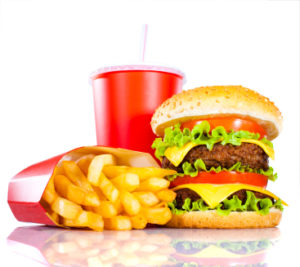Weed, Wine and Watching TV Part 1

Did I catch your attention with the title? Good. I was hoping so. I would like to address these things from a perspective of a Wellness Coach who has worked with hundreds of women through the years and seen some addictions that seem harmless in the beginning but could be causing some health issues.
WEED, WINE and WATCHING TV
Why did I put these all in the same category? Because all can become addictive and dangerous for our health. Really? REALLY!
The women and men I have worked with who have some or all of these addictions are really no different than you and I. They are professionals, parents, and usually individuals that have high stress and can’t seem to relax or turn their mind off without it.
Let’s start with the most obvious but least talked about addiction – WEED.
Weed:
The technical name is marijuana, an illegal drug in most states in the US, and although there are various opinions about the legalization of marijuana, daily use of it is not good for our bodies and brains. If you use this drug everyday even a little bit or most days of the week, your body and brain will change.
Side effects of daily use of marijuana: (via research and the Total Wellness Doc’s opinion)
Mental clarity, respiratory issues, loss of libido, anxiety, moodiness, depression, higher incidence of cancer, relationship issues, and sometimes going over the dead end. And men don’t forget the lovely “man boobs” you will get from long term use.
Wine:
I live near the Finger Lakes wine country and I know many enjoy the wine tours and the hard work of this area’s farmers. But just like weed, wine can become a dependency if used everyday. Most people don’t realize that medications, disorders and diseases are all contraindications to not drink wine.
Side effects of daily use of wine: (via research and the Total Wellness Doc’s opinion)
Risk of dependency, over indulging, interruption of sleep (may initially put you to sleep but the quality of sleep is diminished and many will not feel rested in the morning), decreased inhibitions like you could easily say something to someone inappropriately on Facebook while drinking, loss of libido and decreased sexual function, dependency to relax, dependency to reduce pain experienced in feet, back or body from work day.
I also see and believe that women that drink wine everyday age faster especially during menopause. I believe this is due to overtaxing the liver, decrease of hormones and increase of free radicals that increase the aging of the skin and body.
Contraindications of drinking wine:
Sleeping disorders, stomach infections and stomach ulcers, hypertension or other heart problems, memory problems and family history of severe memory diseases such as Alzheimer’s disease, sexual problems such as erectile dysfunction, family history of cancers, dementia or alcoholism etc. Wine is also not recommended if you have a history of psychological illnesses- depression, bipolar syndrome, schizophrenia, attention deficit disorder or others. Taken from http://templeofwine.com/content/negative-sides-wine-consumption
What about Red Wine?
Red wine is touted for its health benefits for the heart. This may be true but ingesting alcohol everyday to an already taxed body is not safe. Studies show one drink of red wine may benefit the heart and blood vessels. Two or more drinks can counteract the beneficial effect of one drink and is likely to have an adverse effect on your health. So here is my opinion. I really don’t think anyone with digestive problems, heart disease, chronic illness, cancer, or disease in general should be drinking this everyday. Limit to once a week and 1 glass.
I have always enjoyed my red wine but for the past few years and dramas, I have been increasingly using it as a way of relaxing and numbing myself. I am on antidepressants so I know this is not a good mix. It came to a head a few days ago when I felt very down and drank a whole bottle of wine. I still feel ill and have been off the booze since but know that the craving will return and especially if I have a difficult situation to deal with.
Watching TV:
Now why would I put watching TV in there with addictions of marijuana and wine? Well to be honest, I think this is probably the hardest addiction and least recognized, or maybe because it was or can be one of my addictions.
I interview women and men every month for associate positions with our Natural Remedies company, many who are looking for a part time work at home side business. When accepted into the program, they go through 3 phases of training with the initial training and take a good look at where and how they spend all of the hours of the week. Many are shocked that they spend more time watching TV than they do quality time with their spouse or kids. Don’t get me wrong, we all have a show or two we like to watch every week together with the family, spouse or friends but when 12 hours or more of TV time a week becomes a habit, we have to look at WHY we are watching so much television.
Side effects of too much TV: (research and my opinion)
Depression, sleep disorders, anxiety, weight gain, heart disease, poor relationships, reality disorder, marriage issues, lack of awareness of what is happening in your home, increased incidence of diabetes and the list goes on.
So now that I may have depressed you with all this information, part 2 of Weed, Wine and Watching TV will give you specific steps to help replace these things with more healthy and happy alternatives.
This information is not meant to diagnosis or prescribe, if you feel you have a serious health issue or addiction please seek competent medical advice.
We publish newsletters and blogposts twice a week for our readers for general education purposes only. We cover topics that are related to achieving and maintaining total wellness which includes our emotional, physical, spiritual and financial health.
Protected: Sleep Deprivation and Diseases: 4 Tips to Better Sleep
Protected: How To Avoid Common Colds and Flu And Boost Your Immunity
Protected: Snoring and Sleep Apnea
12 Secrets of Reforming Eating Patterns to Reshape Your Body

12 Secrets of Reforming Eating Patterns to Reshape Your Body
The following information was gathered from the recent Young Living Convention workshop with Marc Schreuder, Young Living’s Director of Product Formulation held in Orlando, Florida.
What do you think is the secret to losing weight? Many companies have come up with the latest how-tos and consumers have bought into billions of dollars worth of products and services, yet America as a country is getting fatter and fatter.
Over the years, our food portion and consumption has increased. We are eating more food. Our Body Mass Index (BMI) has increased over the last 20 years, that the country even come out with a statistic for the ‘fat belt’ (states with the most obese and overweight population). It is not unique to America alone. In the United Kingdom, the government is introducing the ‘Fat Tax’.
If there are so many diet programs that worked for many individuals, why not for millions of us? Losing weight involves our mind and body. Without working on your mind, you will not have the body you want.
We need a strategy to lose fat. We have discussed in our past articles here at The Total Wellness System that lack of sleep leads to obesity and allergy medication can cause weight gain. We will discuss in great length in our new Free Report and Coaching Programs.
Here are 12 simple keys you can follow immediately:
Recognize Addiction: The first rule of sustainable weight loss and keeping it off is recognizing you have food addiction. A lot of us are in denial. If you don’t recognize that, this key is of no value to you. Once we recognize our addiction and that we are ‘fed up’ with being overweight and over fed, we can start working on ourselves.
Studies show that the dopamine in obese and overweight people is the same as drug users. The brain of a food addict and the brain of a cocaine addict are the same.
Stay Motivated: This is unique to everyone. What motivates me may not motivate you. You have to find out what motivates you…is it your children, your looks and your total wellness? You need to find a reason to change your habit. If you don’t have a reason, you will not be motivated.
We are creatures of habit. We have our favorite food, places to eat and favorites of everything. It takes work to change our habits. What you do today, will affect your tomorrow. Our lifestyle determines our lifespan and also there is a multigenerational effect link to our weight and eating habits. Dr. Lars Olov Bygren in Sweden research showed that in Overkalix, Sweden, boys who enjoyed those rare overabundant winters — kids who went from normal eating to gluttony in a single season — produced sons and grandsons who lived shorter lives.
Cancer researchers have reported the links between obesity and cancer. Women who are overweight have more chances of getting breast cancer and colon cancer.
Dealing with Stress: Do you eat when you are stressed? Most of us don’t even taste the food we eat. We inhale and gobble them up without realizing it. We sometimes refer to certain food as comfort food.
Stress and obesity are linked and stress unlocks fat cells which creates cortisol. Cortisol is produced by our adrenal gland and will actually make you feel hungrier and increases your appetite when there is stress.
Imagine if you could recognize your stress and take control of it and eat less?
In Brazil, copaiba oil is used on children and adults to reduce stress. Some children are given a teaspoon a day to cope with stress. Copaiba essential oil and Bergamot essential oil will help reduce stress. Inhale Stress Away a couple of minutes before meals.
Recognize Emotional Eating: Are you eating other than being hungry? Do you know when to stop eating? Are your emotions of being happy, sad, bored or excited satisfied by food? Recognize your eating habits… the difference between emotional and hunger eating. Some people need professional help to help recognize their emotions and food.
Breaking Old Habits: To lose weight long term you need to break old habits. Say goodbye to your old habits. Do you reward your child with food? Do we bring our children to a fast food place because they behave or did well in school? When they grow up they have the habit of going for fast food. Studies show that patients with a heart attack will go back to eating fast food after six months. Is that an addiction? Is the old habit of eating fast food difficult to break?
As more and more of us are getting more overweight, more and more fast foods are consumed each day. The price of food has gone up but fast food has not climbed as significantly as raw food.
We, as a society need to unlearn our behavior, reprogram our brain to eat healthier food. Recognize there are pleasure traps everywhere. Pleasure traps are at the check out counter in your local supermarket…convenient and pleasurable candies.
Fasting may be a way to break old habits. It helps us learn to exchange pleasure with happiness. Pleasure is a response to stimulus while happiness is ongoing and goal oriented. Do you know the difference? Fasting may reset our taste buds.
Read Labels: Learn to read labels and the right type of food for you and your family. Low fat foods are sold by the billions each year since 1993. It was $18 billion in 1993 and in 2009, reached $50 billion. However, we are still getting fatter. We, as a society, are trying hard and buying low fat food but is that our answer?
Low fat food is high in carbohydrate. The right type of fat may be good for you because the lack of fat is now replaced by carbohydrates and sugary foods. The good fats are coconut oil, walnut oil, flax seed oil, olive oil, cocoa butter oil and Omega 3 oil.
Eliminate Sugar: Most of our sugar intake is now in liquid form. The teas, sodas and the energy drink. The white bread and whole wheat bread we consume everyday will be converted into sugar in our blood streams.
The glycemic index of whole wheat bread is 71 while cane sugar is 59. The food you eat will affect your blood sugar. Cancer cells like sugar and they feed on sugar.
Recognize the Pitfalls of Sugar Substitutes: The pink, yellow and blue sugar substitutes that are readily available. One of them can kill ants! Research shows women’s kidney damage is on the rise because of sweeteners.
It also shows that sugar substitutes will make you hungrier. They do the opposite and increase your desire to eat.
Low Glycemic Food: Eat minimally cooked food or raw food. Suggested foods are high fiber foods, beans and lentils.
Blocking Inflammation: Medical research shows, obesity and inflammation are linked together. Oils that are high in carvacrol like Oregano, Ocotea essential oil; Roman Chamomile and German Chamomile are recommended.
Achieve Physical Satiety: You can achieve physical satiety by eating an apple before a meal, suck on a piece of dark chocolate or sip hot Slique Tea.
Yes, Slique Tea is a slimming Spice Tea with Ocotea, Oolong and Cacao. We will be unveiling this in a few weeks.
Use Aroma for Satiety: Aromatherapy can help manage psychological satiety. Slique Tea is formulated to include frankincense and vanilla essential oils. Sipping it 10 minutes before meals will help to reduce food cravings.
Finally, eat your meal slowly, take every bite and honor your food as your daily gift. Savor, smell, cherish and enjoy every bite…honor your good and don’t take advantage of what we have.
Let’s do it together.
Please share your comments below. Your comments help us serve you better.
 Dr. Mary Starr Carter is known as the Total Wellness Doc. She has been training individuals about Natural Health Solutions for over 13 years. She is trained as a Chiropractor and has studied under the world’s foremost leaders in natural medicine. She is a mother and a wife and has created a balanced and total wellness life for herself and thousands of her clients using her simple wholistic approach to health and wellness. Her coaching, classes and ebooks help clients with Fibromyalgia, Hormone and Adrenal issues, Asthma, Diabetes, Weight problems, Thyroid and Chronic pain find resources and solutions to better health.
Dr. Mary Starr Carter is known as the Total Wellness Doc. She has been training individuals about Natural Health Solutions for over 13 years. She is trained as a Chiropractor and has studied under the world’s foremost leaders in natural medicine. She is a mother and a wife and has created a balanced and total wellness life for herself and thousands of her clients using her simple wholistic approach to health and wellness. Her coaching, classes and ebooks help clients with Fibromyalgia, Hormone and Adrenal issues, Asthma, Diabetes, Weight problems, Thyroid and Chronic pain find resources and solutions to better health.
We publish newsletters and blogposts twice a week for our readers for general education purposes only. We cover topics that are related to achieving and maintaining total wellness which includes our emotional, physical, spiritual and financial health.